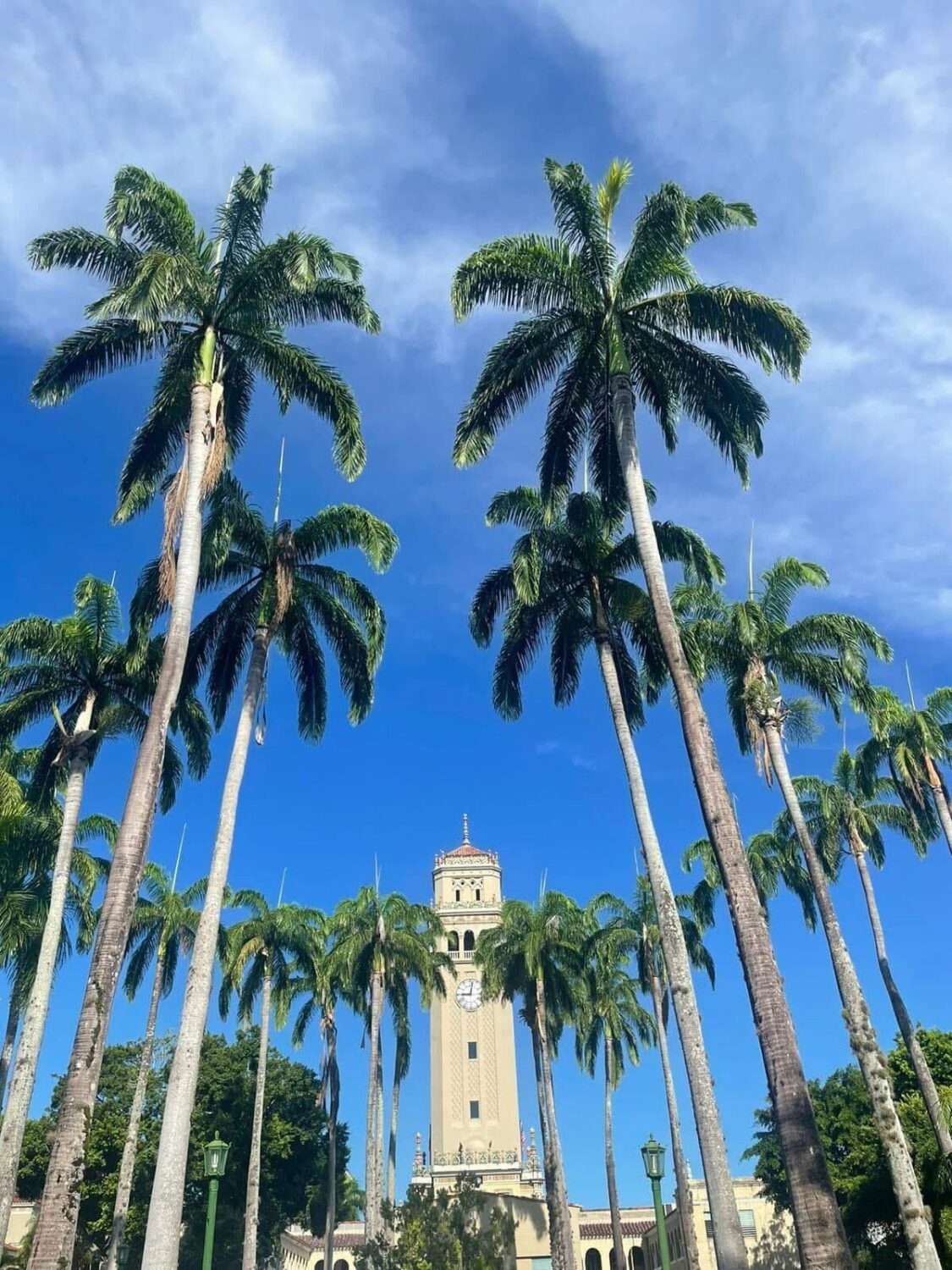A large part of the deaf community has experienced the challenges that come with being deaf in a mostly hearing family. In many cases, deaf members of hearing families experience linguistic disconnect and/or social isolation because of differences in communication modes. For deaf Latine individuals, these challenges may be increased due to the language barriers between the deaf individual, the hearing family, and the outside community. For the vast majority of deaf students in the United States, education occurs using English, ASL, or an English-based sign system. According to the Gallaudet Research Institute, Hispanic and Latine students make up 25.3% of the deaf school-age population (Gallaudet Research Institute). Even with this significant number, it’s very rare for deaf education programs to make a commitment to teaching Spanish or any Latinamerican Signed Languages.
Because of this, deaf Latinos often experience a lack of connection with their families. In a panel with the National Portrait Gallery and the Smithsonian Latino Center, former Gallaudet University president Dr. Robert Davila spoke about the communication challenges he experienced growing up as a deaf Mexican-American. Davila said, “Going to the school for the deaf forced a change within my family. Learning a new language (English), the dynamics of my family had to change.” Davila went on to explain that because he couldn’t speak Spanish at school, his mother had to change the language used at home, which made the family more disconnected from their culture and heritage (Smithsonian Latino Center).
In my personal experience, my deaf Latine background has come with unique challenges. One of these challenges is the struggle to maintain a connection with my Mexican heritage. My culture’s tradition of oral history and storytelling is strong, and many Mexican individuals learn about their family history through conversations with their elders. In my mostly hearing and non-signing family, making these connections with my parents, grandparents, and extended family has been difficult. I wish to know more about my heritage, and I often find myself wondering about my ancestral background. But without language access with my family, the ability to obtain this knowledge is limited. Instead, I’ve tried to learn what I can about Mexican culture and history through reading, researching, attending history classes, and seeking information from other deaf Latine people.
Mario “Manny” Hernandez, a deaf Puerto Rican, embodies the cultural tradition of storytelling through engaging visual poems. He shared his journey as a deaf Latino along with Dr. Davila on the panel with the Smithsonian Latino Center. “Lexington School for the deaf had a few requirements. One of those was that English must be spoken in the home environment. So we had to get rid of Spanish,” said Hernandez. When recounting memories of his home and life with his family, who cooked traditional Puerto-Rican dishes for him, Hernandez recalled, “Food became my cultural connection.” He managed to find ways to maintain a connection to his heritage in ways that were accessible to him as a deaf individual. In an effort to stand out as a deaf Latino, Hernandez shares his craft of storytelling with deaf youth around the nation. Through his work as a master storyteller, he continues the Latino tradition of oral storytelling through visual language, celebrating the identities of which he says he is now incredibly proud (Smithsonian Latino Center).
In an effort to create a more welcoming environment for Latine youth in deaf education, several schools for the deaf have now implemented programs to connect Latine families with the community. One of these programs is at The Statewide Outreach Center at Texas School for the deaf (SOC). The SOC offers resources for Spanish-speaking families of TSD students, including Spanish interpretation at family events, parent-to-parent mentorship programs, and translated digital resources about deaf education, assistive technology, the Americans with Disabilities Act, and other topics related to deafness (Texas School for the Deaf.) In an interview with Fox News, TSD faculty member Johnett Scogin stated, “We are fortunate that our Spanish Family Liaison program is so successful at helping us to keep the strong familial and cultural bonds of our Latino students intact” (Fox News). In a state with a large population of Latine students, the efforts of Texas School for the deaf to connect with Latine families create a lasting impact on the community. Many deaf individuals attest that their educational experiences have influenced them over their entire lifetime, meaning that it’s crucial for deaf education professionals to foster positive relationships with the next generation of deaf Latinos.
Other resources have been implemented for the wider deaf Latine community. Council De Manos is an organization dedicated to empowering the Latine deaf communities through education, advocacy, and cultural preservation efforts. They hold biennial conferences where they feature Latine speakers and advocates, provide educational workshops, and highlight deaf-owned businesses. You can learn more about Council De Manos at https://www.councildemanos.org/. Another organization, Deaf Latinos y Familias, works with families of deaf, hard of hearing, and non-verbal individuals to bridge the existing communication gap. Based in California, this non-profit organization holds American Sign Language classes in Spanish and provides other resources to families in order to help them adapt to deaf culture and become more involved in the deaf communities. To learn more about Deaf Latinos Y Familias, visit https://deaflatinosyfamilias.org/.
By learning about the diverse experiences of deaf Latine people this month and reminiscing on my own life as a deaf Latina, I have a renewed sense of pride in my identity. Despite the added challenges, I recognize that my Latine culture is one that is full of rich histories, beautiful traditions, and diverse communities of incredible people. Like Manny Hernandez, I find value in maintaining a connection with my heritage through means that are accessible to me, such as food, visual stories, literature, and advocacy. It’s important to recognize the struggles faced by our community as well in order to bring awareness to areas of improvement and validate our experiences. This year’s National Hispanic Heritage Month brings a new opportunity to celebrate and advocate for intersectionality in the Latine community, which includes the various identities of deaf people. Advocacy efforts for deaf Latine people include the continued fight for language access and linguistic representation in a society that predominantly values spoken English. By recognizing the cultural value of our community’s languages, such as Spanish, ASL, and Latinamerican Signed Languages, we can become more accepting of the beautiful spectrum of the deaf Latine community.
For more resources and information about support services, please visit: nationaldeafcenter.org/resources









